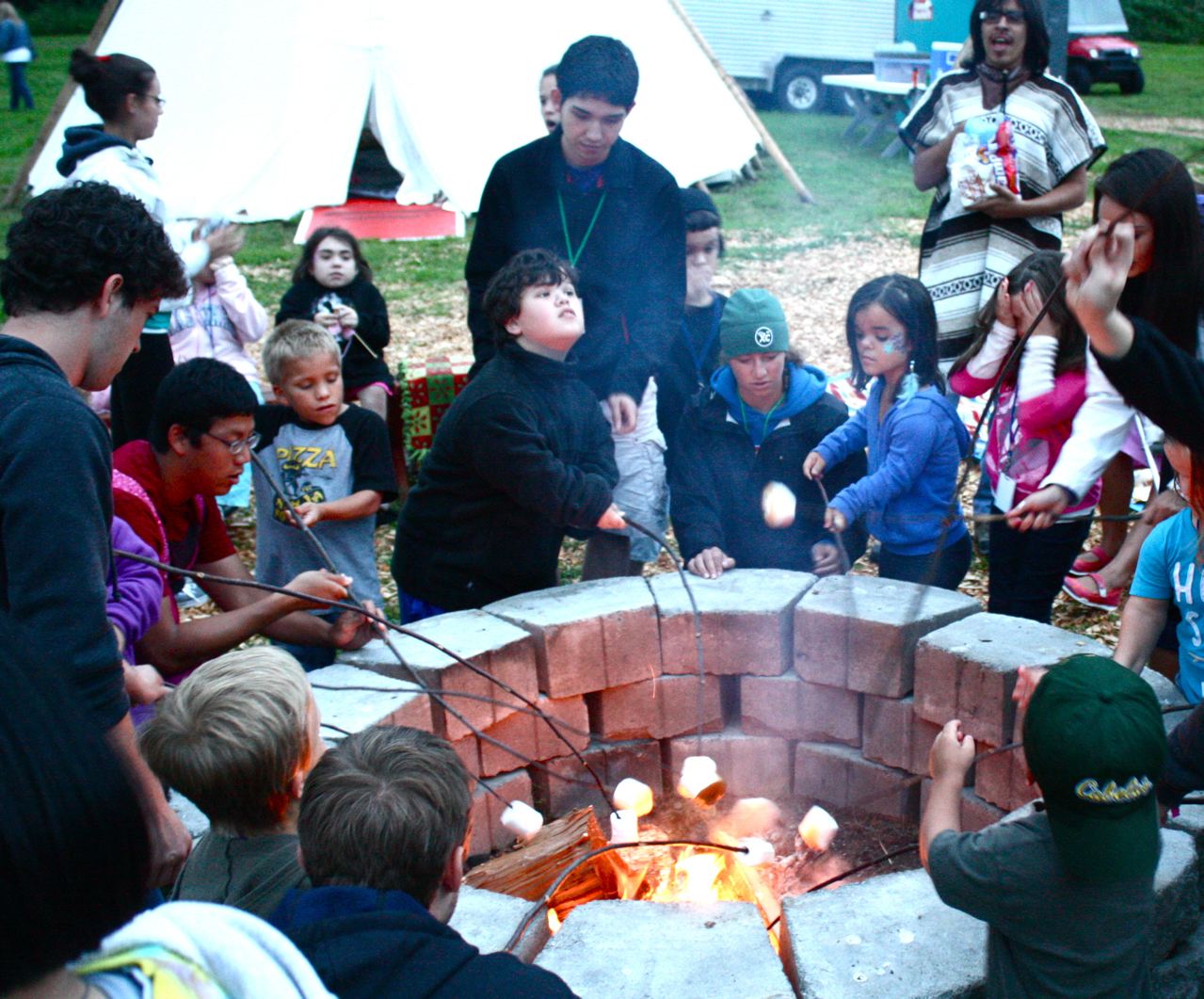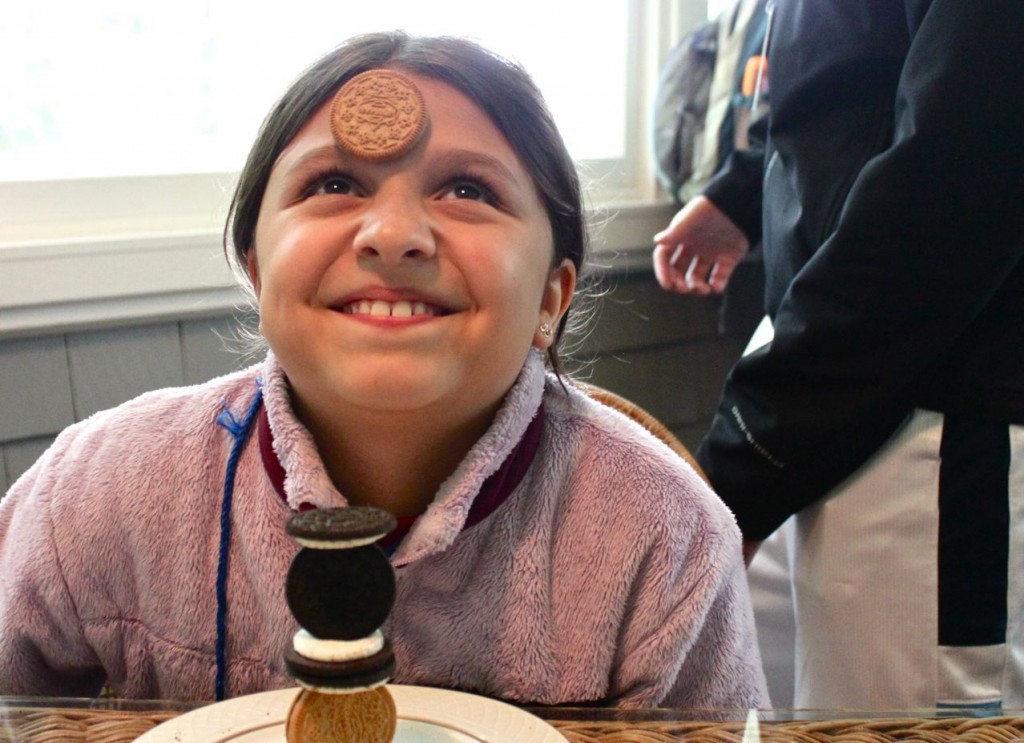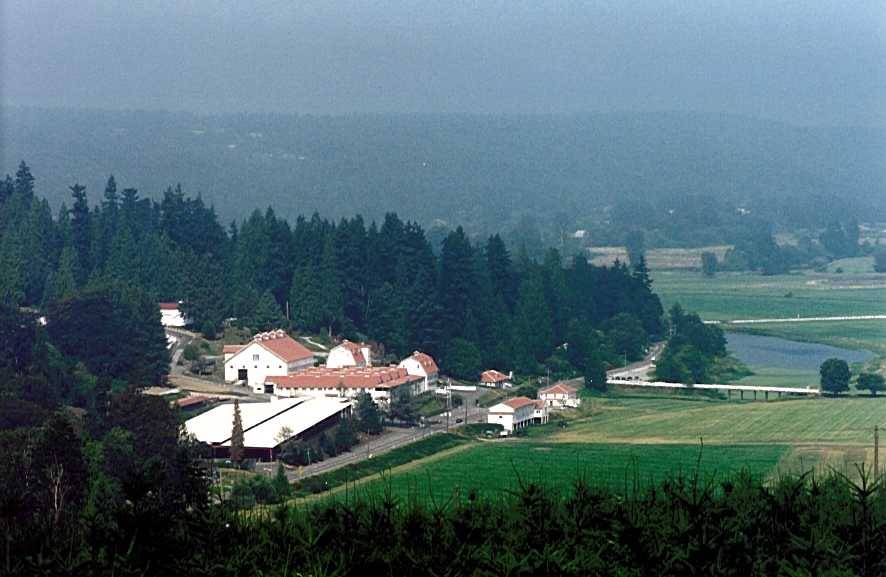Summer at Camp Korey
For no apparent reason but habit, my mental calendar still runs from September until June followed by summer escape mentality between mid June and Labor Day. So if you have noticed a lack of food postings, and I hope you have, that is why.
I spent a good part of this and last summer volunteering in the kitchen at Camp Korey, a Hole-In-The-Wall camp where kids play, swim, fish, ride horses, sleep in tents, labor creatively over arts and crafts, sing, laugh, perform in a camp-wide talent show and get all goofy (and pretty wet) at a weekly carnival that ends with a surprise visit from the local fire fighters and their very big hoses.
The difference between Camp Korey and most other camps is that the campers have serious or life-threatening illnesses that put traditional mainstream camps impossibly beyond their reach. It also is one of the happiest places I have experienced.
A spectacular sylvan setting tucked under the Cascade Mountains in the Snoqualmie River Valley, Camp Korey originally was the home of Carnation Farms. With conifer filled woods, huge hay fields, a lake, an Olympic size swimming pool, a wheelchair accessible obstacle course built high into towering fir trees, an indoor climbing wall and a former horse arena converted into a covered play, dining, and general party facility, the campus provides gorgeous scenery, great play areas and room to walk, ride, run, jump and dance.

Campfire, marshmallows and sleep-out in the Tepee
Camp Korey also is a confluence of love, hope, compassion and old fashioned fun generated by dedicated staff of counselors, nurses, doctors, administrators, volunteers and support staff. Imagine the dedication of a pediatric oncology nurse who spends half of her two-week vacation as a 24/7 camp volunteer. The camp mission is a beacon that attracts the finest of many disciplines.
Each weeklong session is devoted to approximately thirty campers with the same illness, and programs are designed accordingly so the kids will have fun and experience the joys of physical success. Watching a partially paralyzed 10 year old, helmeted and strapped with big metal clips to a loving and strong counselor travel 100 ft. through the air on a zip line was one of the happiest, most beautiful sights I have ever seen. Or 16 year old Michael who spends most of every day in a wheelchair, walk and crawl through the obstacle course with his counselor holding him under his waist, talking him through doubt-filled and outright terrified moments until Michael finally reached the end, threw his hands in the air and shouted “I MADE IT, I MADE IT!” Then he burst into tears.

Chins up for Cookie On The Forehead race
Everyone who has been to camp knows how important the food is. At Camp Korey meals are skillfully planned to be delicious, nourishing and in many cases, safe for children with special dietary needs. When I was asked to help with special diet meals I was thrilled. After all, I have spent years being fascinated by ingredients, and I avidly read nutrition labels on commercial food products. Then I read the campers’ nutrition forms containing words like: anaphylactic shock; absolutely no wheat; no processed sugar including high fructose corn syrup, raw honey or substitute sweeteners containing aspartame; no grapes, apples, pears or concentrates made with them; no strawberries or honeydew melon; absolutely no contact with peanuts or peanut by-products; no cow’s milk or products containing it; no beef or pork; no eggs; no grapefruit or foods containing grapefruit; no more than 10 grams of fat every 24 hours… Suddenly ingredient labels became daunting threats to the lives of precious children. But with the professional experience and calm encouragement of kitchen and food manager Shelley Tollefson, the panic subsided and I rolled up my sleeves.
David can’t eat dairy or wheat, so instead of cinnamon rolls he had toasted gluten- free bread (using a toaster that had never been used with wheat bread), glazed with cinnamon and honey, along with three extra big, juicy strawberries along side. Anthony can’t chew before he swallows, so his meals consisted of different colored and flavored purees (his favorites were the watermelon and potato/bacon soup). Madeline can’t have dairy, wheat, eggs or any fruit but blueberries. Fortunately the local blueberries ripened the week before she arrived. Every camper and every meal are different.
During my fifty years of serious cooking I have learned that great foods to cook and eat are practically endless. At Camp Korey I discovered how many food products designed as substitutes for familiar products are available. A few are weird and/or unpalatable, but lots of them are nutritious and taste good. For the kids at Camp Korey, those foods are a godsend.
So that’s what I have been doing since June in lieu of writing about food. This week my camp summer ends. Afterward, I promise to share more recipes and food stories with you.
Editor’s note: If you would like to help Camp Korey continue on its mission, please visit their website.

Heidi, what a wonderful way to use your culinary talents…….must have been very heartwarming to give in this way!! And, how lucky the children were to have you in the kitchen!! Sue
God Bless Ya’
Wonderful camp Heidi – thrilled you have been a part of it. You are an inspiration!
Margot
I have been to Camp Korey and also have volunteered in the camping experience for seriousluy ill children at another setting. Your description of the camp, it’s outstanding and creative offerings and introduction of several campers and their individual needs makes camp come alive. We have been enriched by this late summer entry on Fresh by Northwest and you are a treasure and inspiration.
Heidi and Camp Korey-a match made in heaven.